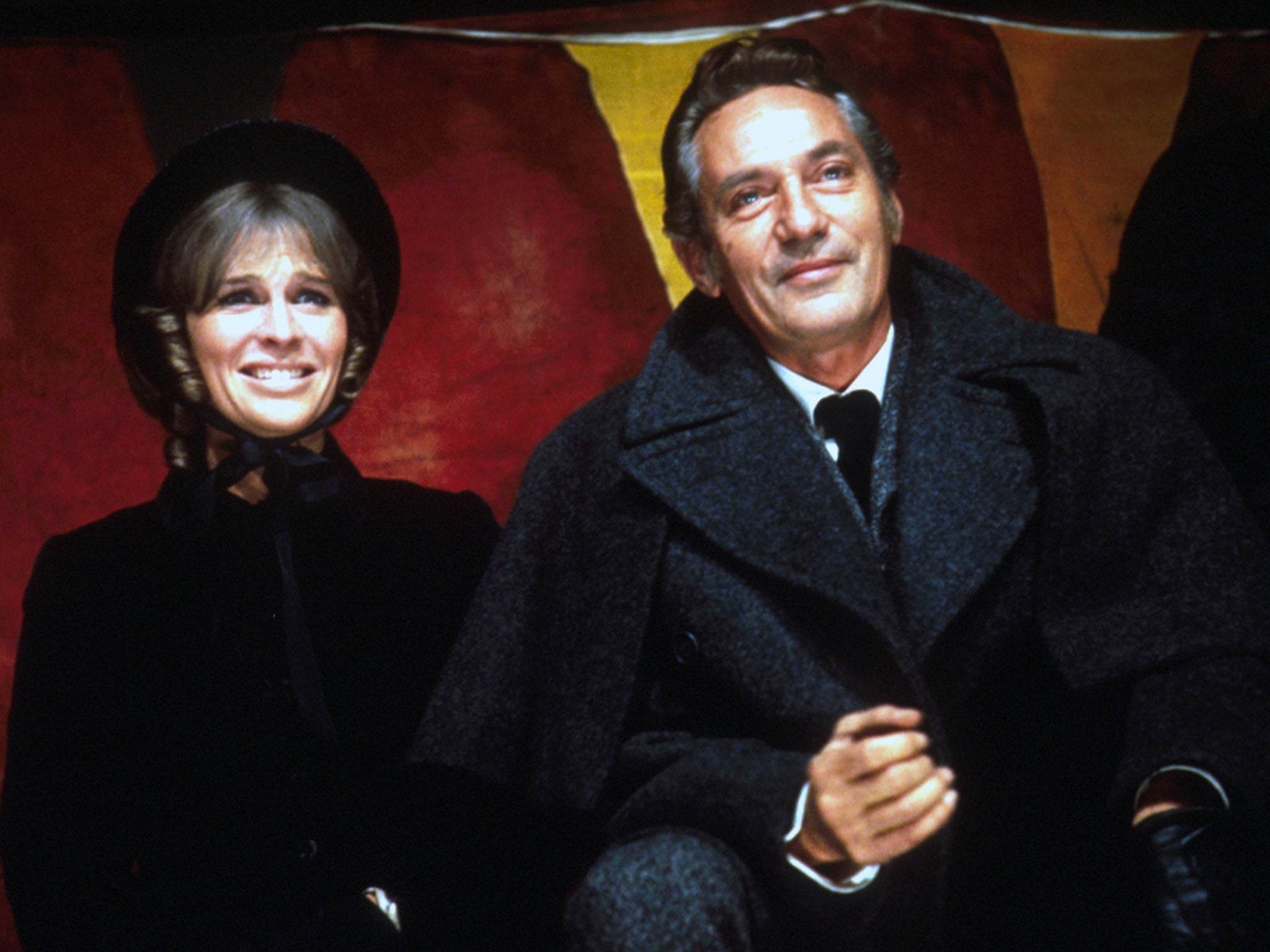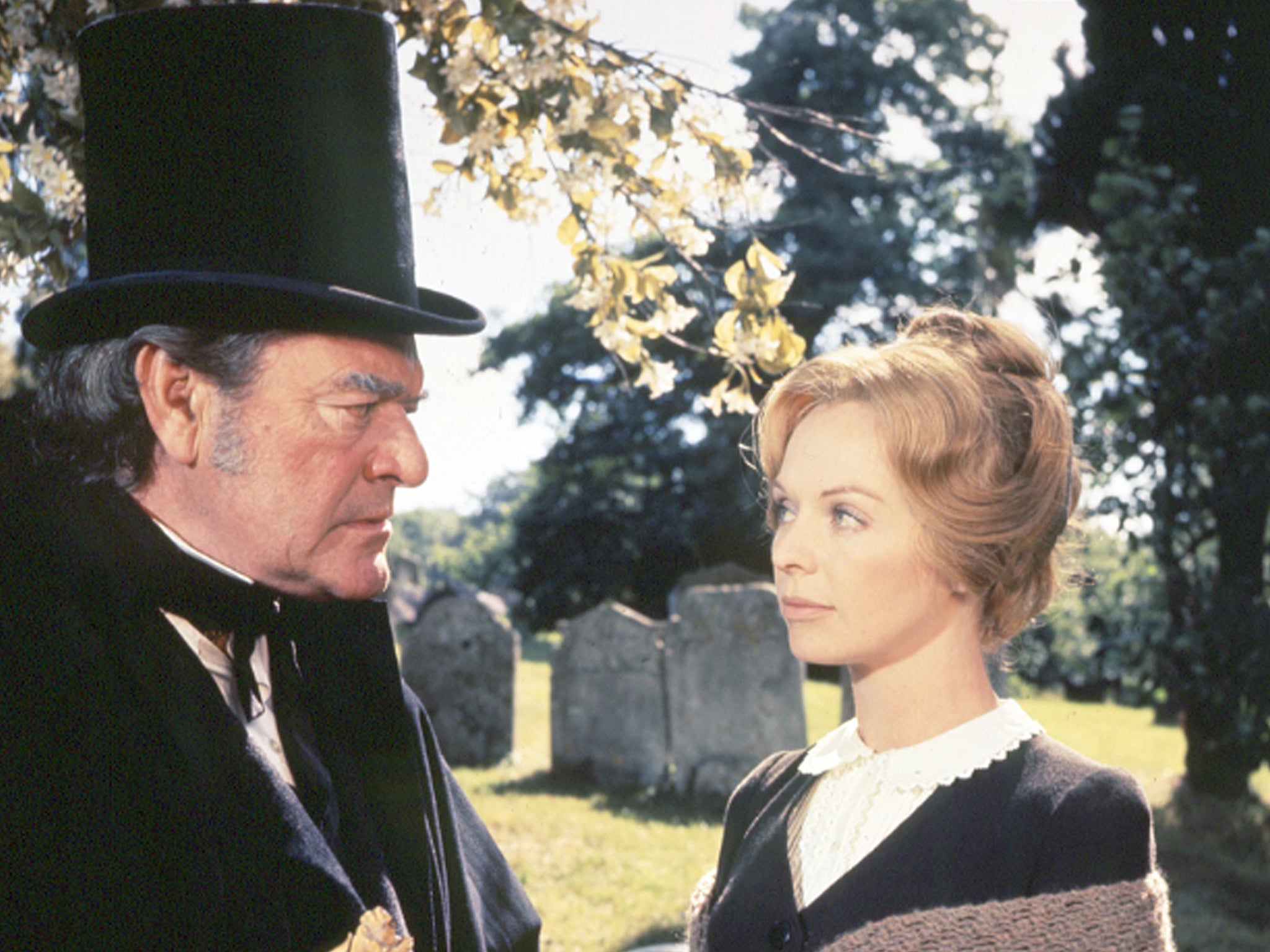John Walsh on Thomas Vinterberg's Far from the Madding Crowd: I'm shocked someone thinks such a classic film needs a remake
Carey Mulligan seems to have spent her entire film career in tears

Your support helps us to tell the story
From reproductive rights to climate change to Big Tech, The Independent is on the ground when the story is developing. Whether it's investigating the financials of Elon Musk's pro-Trump PAC or producing our latest documentary, 'The A Word', which shines a light on the American women fighting for reproductive rights, we know how important it is to parse out the facts from the messaging.
At such a critical moment in US history, we need reporters on the ground. Your donation allows us to keep sending journalists to speak to both sides of the story.
The Independent is trusted by Americans across the entire political spectrum. And unlike many other quality news outlets, we choose not to lock Americans out of our reporting and analysis with paywalls. We believe quality journalism should be available to everyone, paid for by those who can afford it.
Your support makes all the difference.Nobody with a full set of marbles would think of re-making Citizen Kane, would they? No director who was not clinically deranged would consider having a fresh look at Some Like It Hot, would she (or he)? No producers of any credibility would approach a studio to suggest re-booting The Sound of Music or Cabaret, would they?
It’s not possible: these are classic works, not just of their time (1941, 1959, 1965 and 1972, respectively) but of film history. Their virtues shine the more with repeated viewings.
So how is it that, sometimes, unimprovably fine films can be deemed in need of a major re-think? Who, to put it another way, let Thomas Vinterberg re-make Far from the Madding Crowd?
Mr Vinterberg is the skilful Danish director of Festen, a brilliantly claustrophobia drama of a family in meltdown; of the chaotic and whimsical SF/thriller/romance It’s All About Love; of Dear Wendy, a critically mauled Lars von Trier-scripted fable about US gun culture; and of The Hunt, about a chilling get-the-paedophile Christmas witch-hunt. How this CV inspired him to take on an English literary classic is anyone’s guess. “I felt the relief of not having written it myself,” he told the Guardian, “of knowing I was doing a Thomas Hardy film, not a Thomas Vinterberg film.”
Doing a Thomas Hardy film? If he meant “making a film that would stick closely to the thrust and resolution of Hardy’s 1874 novel”, he has fallen a good deal short. He’s re-visited the territory of John Schlesinger’s 1967 adaptation, scripted by Frederic Raphael and photographed by Nicolas Roeg, to produce a truncated, foreshortened, coarsened and simplified photocopy.
Roeg, in keeping with Hardy’s vision of Wessex as a participant in the human drama, ranged his camera across wide, dramatic and shaggy landscapes, against which Bathsheba Everdene and Gabriel Oak were tiny figures dwarfed by fate and circumstance. In Vinterberg’s take, Wessex is all chocolate-boxy pastoral cuteness, with perfectly-composed, slanting-sunlight shots of haymaking or gleaning, straight from Jean-Francois Millet.
Rather than try anything radically new, Vinterberg and his screenwriter David Nicholls speed things up (119 minutes, down from 168) and portray the same set-pieces, only faster and trimmed: the sheep-over-the-cliff scene, the Bathsheba’s-in-charge scene, the Farmer-Oak-saves-the-barn scene, the sword-waving scene, the Farmer-Oak-saves-the-hayricks scene, the harvest-home-with-singsong scene – all filmed in the same me-too style, only more briskly, as if there’s no time to lose.
The dialogue doesn’t have time for flowery language. Where Schlesinger used Gabriel Oak’s marriage proposal in the novel, “And by the fire, when I look up, there you shall be; and when you look up, there I shall be” – a perfect statement of mutual support and gender equality – Nicholls has Oak say, “I’ll always be there for you,” a 21st century cliché.

Many scenes simply miss their target. The scene in the Corn Exchange, for instance, which displays Bathsheba’s shrewdness amid the whiskery chauvinists of the farming community. Carey Mulligan sets out her stall and is offered a derisory price for her corn. She insists on her asking-price and strikes a deal. How enthralling. In the 1967 film, one farmer tries to convince Julie Christie his corn is the best in Wessex; all eyes watch her as she sniffs it, testing its quality – then flings the rubbishy corn into the air. Her flinging hand is replayed in slowmo as we (and Farmer Boldwood) register that she’s both a canny judge of crops, and a very desirable heroine.

Watch Apple TV+ free for 7 days
New subscribers only. £8.99/mo. after free trial. Plan auto-renews until cancelled

Watch Apple TV+ free for 7 days
New subscribers only. £8.99/mo. after free trial. Plan auto-renews until cancelled
Or take the “sword exercise”, in which Tom Sturridge as Troy demonstrates his prowess with a blade, stabbing the air around Bathsheba’s body. It’s an improvement on the 1967 film, until Vinterberg has a shocking lapse of taste: Troy gives Bathsheba her first proper kiss, and clamps his hand on her crotch. Whaaaat? The poetry of the scene, the symbolic freight of the thrusting sword, the girl’s wide-eyed response between fear and excitement, the sunlit bower, the hum of awakening sexuality, are all ruined by a gesture you might expect from a lagered-up sailor outside a Portsmouth pub. The Bathsheba we’ve seen running the farm and mucking in at the sheep-dip would have smacked his face for his impudence.
Vinterberg’s film foregrounds one thing: the romance between Bathsheba and Oak. In the 1967 version, after his proposal is rejected, Oak’s love for Bathsheba is simply a given, a pilot-light in the background, while her attention is sought by the dashing Troy and Mr Boldwood.

Hardy wanted to contrast the inconvenient throb of passion that bewilders human beings with the cultivation of common sense about love and fulfilment that saves them. Vinterberg’s version tries to turn the story into a feminist narrative, beginning with Bathsheba’s rejection of Oak: “Mr Oak,” she tells him, “if I were ever to marry, I’d want someone to tame me and you’d never be able to do it.” Oak spends the whole film trying to do so. He’s played by Matthias Schoenaerts, the hulking romantic lead du jour with the face of an anxious six-foot fox. Unlike Alan Bates in 1967, he never convinces as a farmer: he spends the film giving Carey Mulligan yearning looks rather than getting on with the hoeing and mangle-wurzling as Farmer Oak is supposed to.
And Mulligan returns his soppy gaze. Was there ever an actress who so constantly looks as if she’s about to cry? Apart from An Education and Shame, Ms Mulligan seems to have spent her film career in tears. Here it seems to be her default setting. This isn’t the Bathsheba (“a merry-go-round of skittishness”) that I know or Hardy invented.
At the start of the 1967 film, Julie Christie tells Alan Bates, “I’m sorry, but I don’t love you a bit. You ought to marry a woman with money who would clear you of debt and stock up a good farm for you. Why do you come bothering me?” Bathsheba’s looking to fall in love and be transformed in its heat. By the end, as in the novel, she reaches a more prosaic understanding of what love and marriage might mean; in Vinterberg’s reading she just ends up “tamed”.
Some remakes are incontrovertibly superior to their originals: True Grit, for instance, in the hands of the Coen brothers, or John McTiernan’s The Thomas Crown Affair. But in these cases, the originals are invariably pretty second-rate. I’m just shocked when a such classic piece of film-making, of script, camerawork, casting and performance as Schlesinger’s Madding Crowd is thought to need a re-think. And what’s this news just in? Studio Canal and the production team behind the Liam Neeson farrago Non-Stop plan to re-make Don’t Look Now. It’s not just my love for Julie Christie, or my memory of the little red coat, that makes me smite my brow with horror.
Join our commenting forum
Join thought-provoking conversations, follow other Independent readers and see their replies
Comments